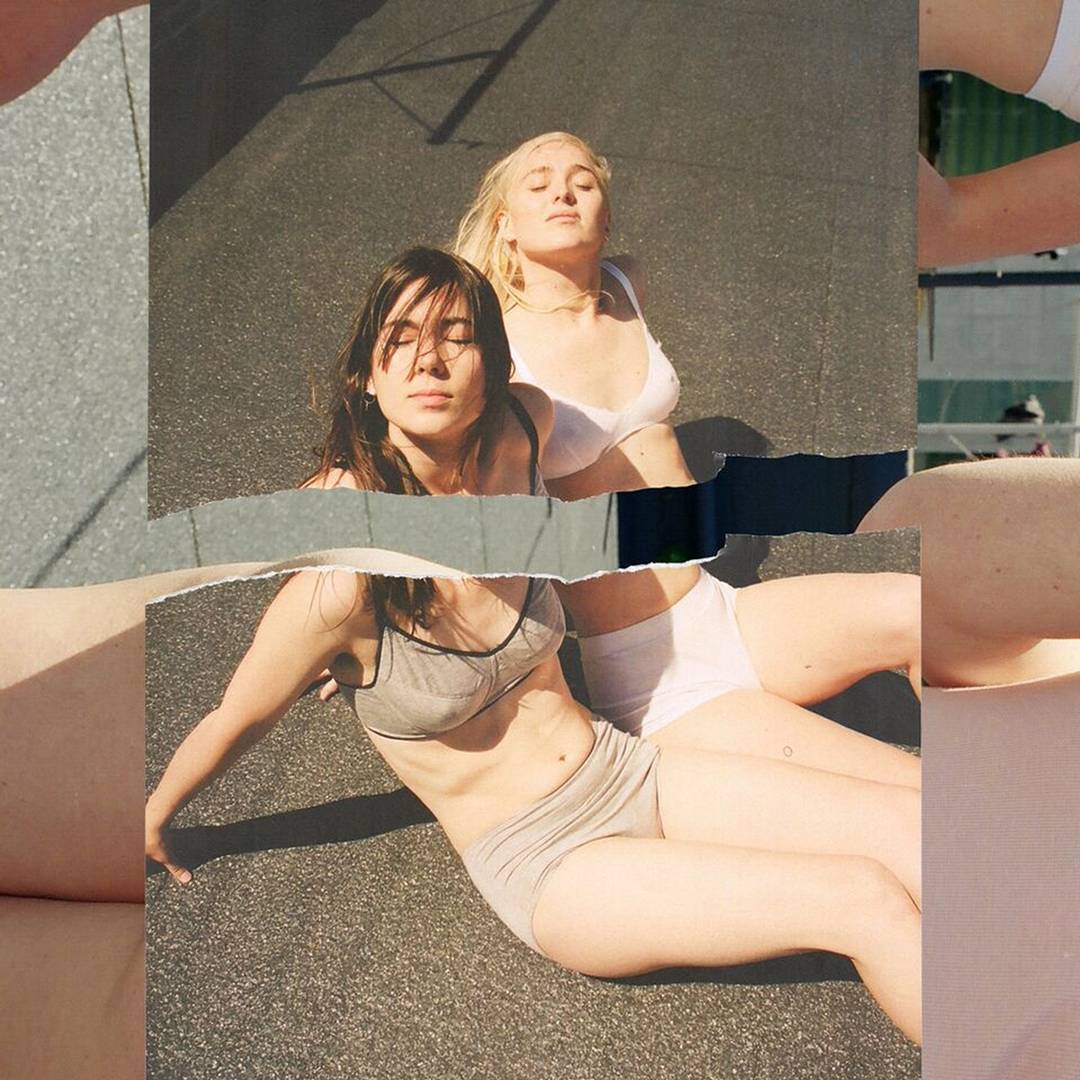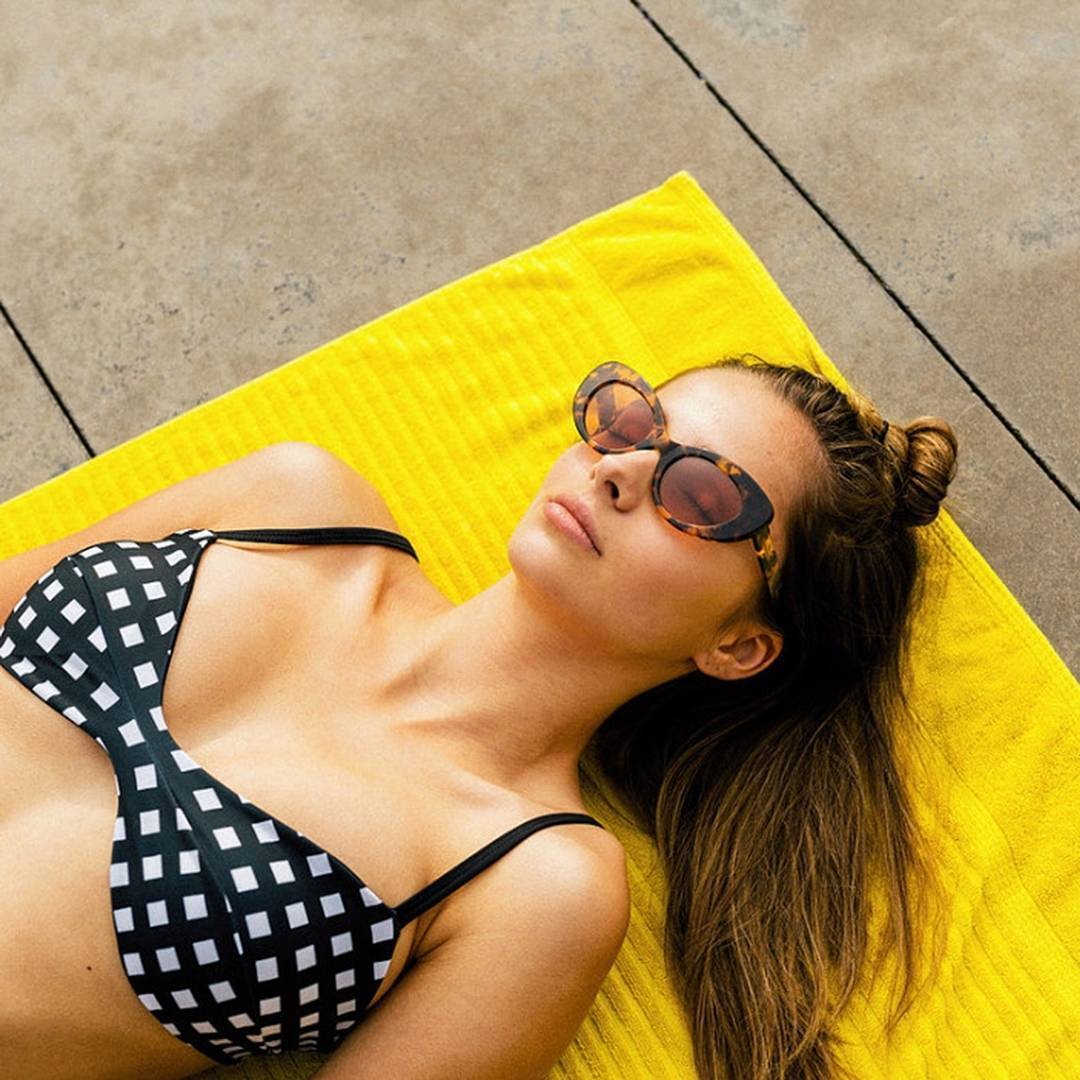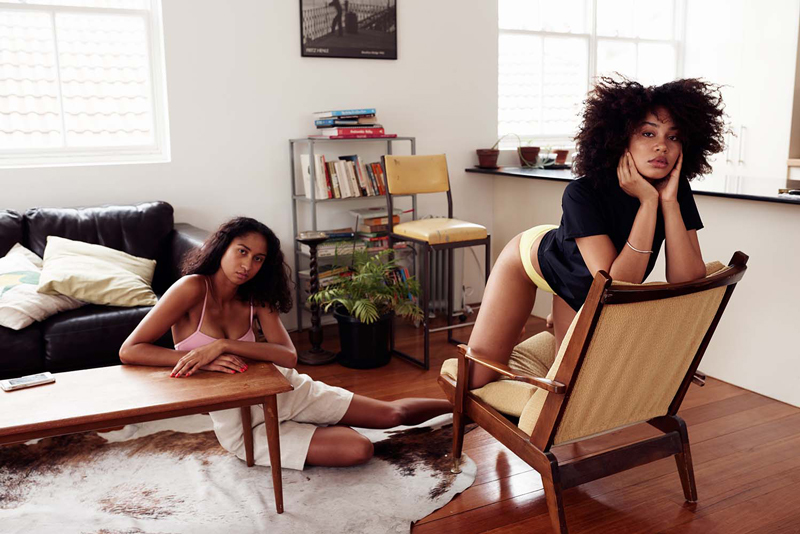When Kelly Elkin and Courtney Sanders first met, they bonded over their shared frustration with the darker side of fashion. From PR greenwashing to the use of pesticides in cotton farming, they knew the industry needed a serious clean up if it was going to be sustainable into the future. They set out to learn how they could do their part in changing things for the better. After many long talks over gin and tonics they were left with more than a hangover, they’d created the framework for a new business.
It’s hard to settle on a definitive description for Well Made Clothes. It’s a store stocking well-curated ethical fashion labels that also offers original editorial and beautiful photo-shoots. Basically, a reflection of the pair’s own concerns, needs, desires and interests. As they explain, “We care deeply about people and the environment, but we also care deeply about looking good.” The result is a space online that manages to house articles on emulating Brigitte Bardot’s summer look and to avoiding labels that employ child workers.
Their marketplace is equally varied, with clothes curated into eight core values: handcrafted, vegan, transparent, local, minimal waste, gender equality, fair and sustainable. While Kelly and Courtney are passionate about all these issues, they’re also realistic about how hollow many of those terms have become. They want Well Made Clothes to be a space that returns meaning to these words, and helps consumers and creators navigate the increasingly complex world of green fashion.
On your site the word sustainable comes up a lot. That can be a pretty opaque concept, how do you define it at Well Made Clothes?
Courtney: We have a pretty strict definition which focuses on materials, dyeing, and printing techniques. We wanted our customers to be absolutely clear what our sustainable value means, and what they can expect when they buy something which falls under our sustainable value. A lot of our labels are being sustainable in a broader definition of the term, but we keep the definitions of our values super tight so we’re not greenwashing and so our customers know exactly what to expect.
The label has to be using sustainable fibres (not to be confused with natural fibres) like certified organic cotton, closed loop viscose (bamboo, lyocell, Lenzing Modal), recycled polyester, hemp, or peace silk, and/or has to be using low impact dyes or vegetable tanning processes, and/or has to be climate neutral.

I noticed you seem to have less brands under sustainable than some of the other values. Do you think this part of the industry has more room to grow?
Courtney: Of course! For example, conventional cotton crops are considered the dirtiest crops in the world. So if the whole industry simply moved away from conventional cotton, that would be a great start.
It’s certainly not all doom and gloom – there are some positive steps we should celebrate. Some big fashion companies are actively trying to be more sustainable. But it’s important to remember that waste is the biggest problem in the fashion industry. This issue is not simply about changing the fibres we use and producing and consuming the same amount, it’s about creating quality items which reduce the amount of products which have to be produced and consumed.
This is obviously hugely important, but also very complicated for designers or companies looking to make the shift to more ethical production methods. What advice do you give those looking to make their line more sustainable?
Kelly: Start with the materials. It’s a myth that “natural fibres” are “sustainable fibres”. Natural fibres just mean that they originated from cellulose or plants, but often the growing of it, or process required to turn it into an actual fabric is riddled with chemicals and nasty non-environmentally-friendly practices! The first major step designers should take is to reassess the materials they use to focus on organic fibres, recycled fibres or fabrics which are produced using a closed loop system.
How does Well Made Clothes try to reach those who haven’t already bought into your values, and escape the echo-chamber of ideas?
Courtney: One thing we were very clear about from the beginning was that the products on the site have to be well-designed – none of this hessian-sack-dress business. With waste being one of the biggest problems in the fashion industry, if someone makes something that no-one likes or wants to wear, regardless of how ethically it’s been produced, it’s still waste. So in this way, we’re speaking to people who just really love well-designed clothes, too, and if they learn something from us about the fashion industry, or ethical fashion, that’s a bonus.

What struggles do you foresee for those championing ethical production?
Courtney: I think there are a couple of things: firstly, the fashion industry supply chain is just so bloody complex it’s hard to unpack in ways which are super easy to understand, which makes it hard to try to convince the mass market why they should change their shopping habits. I also think fast fashion companies have so much marketing power and so much market share it’s really hard for people to even see an alternative, unless they’re trying really hard. But I do think it’s changing: there’s more information, more criticism, more understanding all the time, and I think that’s only going to grow as millennials become an increasingly important part of the market.
Can you imagine a future where the values your business has are honestly shared by the wider marketplace?
Courtney: Definitely. There are a bunch of studies and research about how millennials make consumer and career decisions, and are much more likely to take the environmental and human impact into consideration when making these decisions. This kind of research has been discussed a bunch this year, and I think it’s exciting to think we’ll see this generation come of age and come of spending power soon and (hopefully) effect positive change on a pretty broad scale.
Credits
Text Naomi Russo
Images via Well Made Clothes
